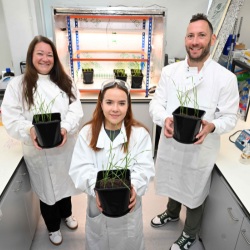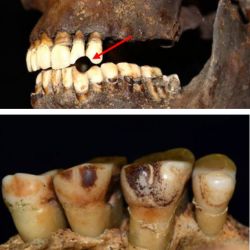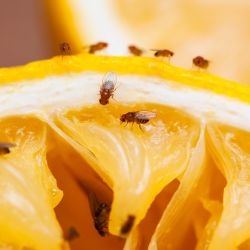-
Study
-
Quick Links
- Open Days & Events
- Real-World Learning
- Unlock Your Potential
- Tuition Fees, Funding & Scholarships
- Real World Learning
-
Undergraduate
- Application Guides
- UCAS Exhibitions
- Extended Degrees
- School & College Outreach
- Information for Parents
-
Postgraduate
- Application Guide
- Postgraduate Research Degrees
- Flexible Learning
- Change Direction
- Register your Interest
-
Student Life
- Students' Union
- The Hub - Student Blog
- Accommodation
- Northumbria Sport
- Support for Students
-
Learning Experience
- Real-World Learning
- Research-enriched learning
- Graduate Futures
- The Business Clinic
- Study Abroad
-
-
International
International
Northumbria’s global footprint touches every continent across the world, through our global partnerships across 17 institutions in 10 countries, to our 277,000 strong alumni community and 150 recruitment partners – we prepare our students for the challenges of tomorrow. Discover more about how to join Northumbria’s global family or our partnerships.
View our Global Footprint-
Quick Links
- Course Search
- Undergraduate Study
- Postgraduate Study
- Information for Parents
- London Campus
- Northumbria Pathway
- Cost of Living
- Sign up for Information
-
International Students
- Information for International Students
- Northumbria and your Country
- International Events
- Application Guide
- Entry Requirements and Education Country Agents
- Global Offices and Regional Teams
- English Requirements
- English Language Centre
- International student support
- Cost of Living
-
International Fees and Funding
- International Undergraduate Fees
- International Undergraduate Funding
- International Masters Fees
- International Masters Funding
- International Postgraduate Research Fees
- International Postgraduate Research Funding
- Useful Financial Information
-
International Partners
- Agent and Representatives Network
- Global Partnerships
- Global Community
-
International Mobility
- Study Abroad
- Information for Incoming Exchange Students
-
-
Business
Business
The world is changing faster than ever before. The future is there to be won by organisations who find ways to turn today's possibilities into tomorrows competitive edge. In a connected world, collaboration can be the key to success.
More on our Business Services-
Business Quick Links
- Contact Us
- Business Events
- Research and Consultancy
- Education and Training
- Workforce Development Courses
- Join our mailing list
-
Education and Training
- Higher and Degree Apprenticeships
- Continuing Professional Development
- Apprenticeship Fees & Funding
- Apprenticeship FAQs
- How to Develop an Apprentice
- Apprenticeship Vacancies
- Enquire Now
-
Research and Consultancy
- Space
- Energy
- AI Futures
- CHASE: Centre for Health and Social Equity
- NESST
-
-
Research
Research
Northumbria is a research-rich, business-focused, professional university with a global reputation for academic quality. We conduct ground-breaking research that is responsive to the science & technology, health & well being, economic and social and arts & cultural needs for the communities
Discover more about our Research-
Quick Links
- Research Peaks of Excellence
- Academic Departments
- Research Staff
- Postgraduate Research Studentships
- Research Events
-
Research at Northumbria
- Interdisciplinary Research Themes
- Research Impact
- REF
- Partners and Collaborators
-
Support for Researchers
- Research and Innovation Services Staff
- Researcher Development and Training
- Ethics, Integrity, and Trusted Research
- University Library
- Vice Chancellors Fellows
-
Research Degrees
- Postgraduate Research Overview
- Doctoral Training Partnerships and Centres
- Academic Departments
-
Research Culture
- Research Culture
- Research Culture Action Plan
- Concordats and Commitments
-
-
About Us
-
About Northumbria
- Our Strategy
- Our Staff
- Our Schools
- Place and Partnerships
- Leadership & Governance
- University Services
- Northumbria History
- Contact us
- Online Shop
-
-
Alumni
Alumni
Northumbria University is renowned for the calibre of its business-ready graduates. Our alumni network has over 253,000 graduates based in 178 countries worldwide in a range of sectors, our alumni are making a real impact on the world.
Our Alumni - Work For Us
The Teaching and Learning Pedagogical Research Team (TeLePRT) is housed within the Department of Applied Sciences and is actively forging links with colleagues across the Faculty of Health and Life Sciences as well as the wider University. Bringing together like-minded academics who share a passion for the enhancement of teaching practice, this group provides a mutually supportive environment to enable members to maximise the benefits of their endeavours.
Pedagogical research encompasses a wide range of topics relating to the enhancement of teaching and learning activities for the development of both student experience and upskilling of staff who engage with students, including both academic and technical colleagues as well as providing continuing professional development activities to the wider market.
Get in touch
We are looking to expand this group and work with like-minded colleagues across Northumbria University and beyond. If you would like to find out more about the projects we are currently working on or would like to become a member of the TeLePRT, please contact Dr Eleanor Graham (eleanor.graham@northumbria.ac.uk).
Team members
Dr Suad Awad’s main interests include the design of assessment and feedback practices. She is also interested in how students learn, and what approaches they adopt towards their own learning.
Dr Anna Black’s main areas of interest include; assessing the impact of Foundation Year on the long term academic performance of students and the development of support packages for estranged or care experienced students.
Dr Ruth Croxton has a primary interest in the use of technology to enhance student learning and experience. Previous projects have included the development of pre-lab learning resources to help students prepare for laboratory practicals and the development of virtual reality crime scenes for training students and the police.
Dr Eleanor Graham’s current areas of interest include, building academic resilience, embedding employability with the curriculum as well exploring staff and student opinion on the blended learning environment. Dr Graham is also the research group lead.
Dr Helen Hooper has projects active in the development of professional identity in academic and professional staff and students as well as promoting and supporting work related learning, enterprise and creativity in STEM.
Dr Alan Langford has projects active in the deployment of tablets in labs for housing lab activity such as instructions, simulation, notetaking, writing, drawing, images capture, data analysis and submission in lab environment. He is also interested in the development of virtual reality to provide an immersive learning experience for students as well as the development of CPD activities for professional in fields such as crime scene investigation.
Dr Seth Racey’s interests are related to the pedagogies behind modernising the curriculum and the delivery of blended online and face to face courses. Particular interest has been on the enhancement of laboratory sessions through online delivery of STEM courses through Journal of Visualised Experiments, LABster lab simulations and self-created video recordings of lab procedures. Further to this Dr Racey is interested in enhancing the cap stone final year project module by fostering autonomous learners through a student directed project conference. Additionally, he has championed the development of higher level MCQs as a way of assessing larger cohorts.
Assoc Prof Patrick Randolph-Quinney’s main areas of interest include Immersive learning environments, virtual/augmented reality and teaching methods in the post-COVID world.
Dr Stephany Veuger holds an MA in Education leadership and is teaching excellence lead for the department of Applied Sciences, She has research experience of a wide variety of pedagogical themes including; eLearning, academic literacies, peer support (currently developing a faculty wide scheme), EDIA and decolonising the curriculum (she is curriculum strand lead of the Northumbria decolonising Network). Stephany often includes students as partners in curriculum development as she believes that partnership is a process for developing engaged student learning and effective learning and teaching enhancement.
Dr Hannah Walden’s main areas of interest relate to equality, diversity and inclusivity and widening participation.
Rewarding Excellence in Teaching Awards
2020–21 Dr Eleanor Graham
2019–2020 Dr Stephany Veuger
2016–2017 Dr Helen Hooper & Dr Stephany Veuger
Teaching/Education Quality Enhancement Funded projects (TQEF/EQEF)
E Graham & A. Langford (2019–2020) £1000. Building Academic Resilience – Enabling our students to Take on Tomorrow
H Hooper, M Cole & A. Bell (2019–2020) £1000. Evaluating a cross disciplinary community of practice and its role in supporting professional identity and practice within STEM*. *Science, Technology, Engineering and Mathematics
S Veuger, S Racey, L Allin. C Bruce, G Case 2018–2019 £3840 Strategic grant Enhancing the undergraduate dissertation experience through students as partners in pedagogical research: A focus on graduate attributes
S Veuger L Cookson, I Robson, L Allin, B Lovell, G Case (2017–2018) £4880. Strategic Collaborative grant. Enhancing the undergraduate dissertation experience through students as partners in pedagogical research
H Hooper & S Veuger (2016–2017) £1000. Exploring the assessment expectations and preferences of first year University students
S Veuger, I Robson, L Cookson (2015–2016) £1,960. Uncovering expectations and supporting the dissertation journey of final year applied science undergraduate students
H Hooper. (2015–2016) £2000. Enhancing student volunteering opportunities and the establishing a regional volunteering support network
H Hooper, (2014–2015) £2000. Enhancing volunteering opportunities and evaluating the impact of volunteering on students using a ‘training the trainers’ approach
Team Member Publications
Black, A.M., 2021. Vocational and Mature Student Success in Higher Education Foundation Programmes. The Journal of Continuing Higher Education, pp.1–17.
Veuger, S. and Racey, S. (2019). Students as partners : on developing a student led conference to enhance the skills of UG project students, International Institute of Social and Economic Sciences. pp 173–192
Veuger. S., Gallagher. S., Creighton, H., Robson, I., Ridley, M. and Cookson, L., (2018). Uncovering expectations and perceptions of the final year UG dissertation – supporting the student research journey and enhancing their graduate attributes, International Institute of Social and Economic Sciences pp.76–100
Awad, S. and Cuculescu-Santana, M., 1759. Using learning dimensions within the Effective Lifelong Learning Inventory (ELLI) as indicators of academic success in Biosciences. Journal of Learning Development in Higher Education ISSN, 667(11), p.2017.
Tweets by NU_TeLePRT
Latest News and Features

Northumbria expands results day support for students
Northumbria University is expanding and enhancing the support it provides to students receiving…

Smart bacteria could transform global agricultural food production
With the global population expected to reach 10 billion by 2050 and crop yields declining annually,…

Scientist honoured for voluntary work by Royal Society of Chemistry
An Assistant Professor at Northumbria University won the Royal Society of Chemistry’s Award…

Smoking leaves lasting mark on teeth, research reveals
Researchers from Northumbria University have discovered that smokers have tell-tale signs of…

Northumbria wins recognition for expanding access to higher education
Northumbria University has been named Higher Education Institution of the Year at a prestigious…

Academy of Medical Sciences funds new research from emerging scientific leaders
Two biomedical sciences researchers from Northumbria University have been awarded grants to…

Read the latest issue of Northumbria University News: Spring 2025 edition
The Spring 2025 edition of Northumbria University’s newspaper is available to collect on campus…

Flies can choose to play, reveals new study
Scientists have discovered that flies can demonstrate play-like behaviour – the first time…
